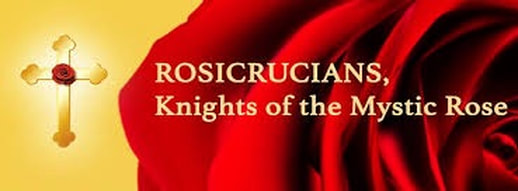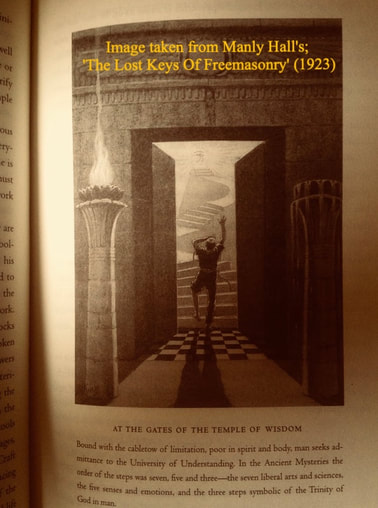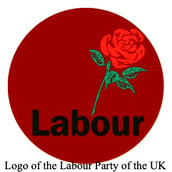 'ROSE The symbolism of the rose among the ancients was twofold. First, as it was dedicated to Venus as the goddess of love, it became the symbol of secrecy, & hence came the expression "under the rose," to indicate that which was spoken in confidence. Again, as it was dedicated to Venus as the personification of the generative energy of nature, it became the symbol of immortality.' - Mackey's Encyclopedia Of Freemasonry (1873) 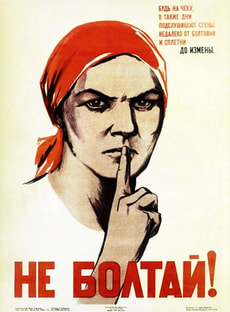 '...MORALS & DOGMA [1871] by: Albert Pike XXII. KNIGHT OF THE ROYAL AXE OR PRINCE OF LIBANUS SYMPATHY with the great laboring classes, respect for labor itself, & resolution to do some good work in our day & generation, these are the lessons of this Degree, & they are purely Masonic. Masonry has made a working-man & his associates the Heroes of her principal legend, & himself the companion of Kings. The idea is as simple & true as it is sublime. From first to last, Masonry is work. It venerates the Grand Architect of the Universe. It commemorates the building of a Temple. Its principal emblems are the working tools of Masons & Artisans. It preserves the name of the first worker in brass & iron as one of its pass-words. When the Brethren meet together, they are at labor. The Master is the overseer who sets the craft to work & gives them proper instruction. Masonry is the apotheosis of WORK…. 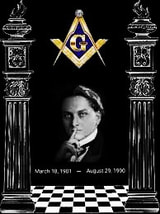 Labor is the truest emblem of God, the Architect & Eternal Maker; noble Labor, which is yet to be the King of this Earth, & sit on the highest Throne. Men without duties to do, are like trees planted on precipices; from the roots of which all the earth has crumbled. Nature owns no man who is not also a Martyr. She scorns the man who sits screened from all work, from want, danger, hardship, the victory over which is work; & has all his work & battling done by other men; & yet there are men who pride themselves that they & theirs have done no work time out of mind. So neither have the swine…. 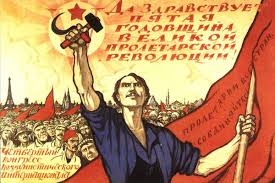 Duty is with us ever; & evermore forbids us to be idle. To work with the hands or brain, according to our requirements & our capacities, to do that which lies before us to do, is more honorable than rank & title. Ploughers, spinners & builders, inventors, & men of science, poets, advocates, & writers, all stand upon one common level, & form one grand, innumerable host, marching ever onward since the beginning of the world: each entitled to our sympathy & respect, each a man & our brother. It was well to give the earth to man as a dark mass, whereon to labor. It was well to provide rude & unsightly materials in the ore-bed & the forest, for him to fashion into splendor & beauty. It was well, not because of that splendor & beauty; but because the act creating them is better than the things themselves; because exertion is nobler than enjoyment; because the laborer is greater & more worthy of honor than the idler. Masonry stands up for the nobility of labor. It is Heaven's great ordinance for human improvement. It has been broken down for ages; & Masonry desires to build it up again. It has been broken down, because men toil only because they must, submitting to it as, in some sort, a degrading necessity; & desiring nothing so much on earth as to escape from it. They fulfill the great law of labor in the letter, but break it in the spirit,: they fulfill it with the muscles, but break it with the mind. Masonry teaches that every idler ought to hasten to some field of labor, manual or mental, as a chosen & coveted theatre of improvement; but he is not impelled to do so, under the teachings of an imperfect civilization. On the contrary, he sits down, folds his hands, & blesses & glorifies himself in his idleness. It is time that this opprobrium of toil were done away…. 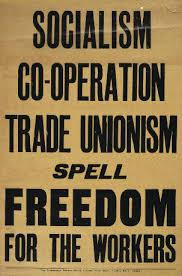 The great law of human industry is this: that industry, working either with the hand or the mind, the application of our powers to some task, to the achievement of some result, lies at the foundation of all human improvement. We are not sent into the world like animals, to crop the spontaneous herbage of the field, & then to lie down in indolent repose: but we are sent to dig the soil & plough the sea; to do the business of cities & the work of manufactories. The world is the great & appointed school of industry. In an artificial state of society, mankind is divided into the idle & the laboring classes; but such was not the design of Providence…. God has not made a world of rich men; but rather a world of poor men; or of men, at least, who must toil for a subsistence. That is, then, the best condition for man, & the grand sphere of human improvement. If the whole world could acquire wealth, (& one man is as much entitled to it as another, when he is born); if the present generation could lay up a complete provision for the next, as some men desire to do for their children; the world would be destroyed at a single blow. All industry would cease with the necessity for it; all improvement would stop with the demand for exertion; the dissipation of fortunes, the mischiefs of which are now countervailed by the healthful tone of society, would breed universal disease, & break out into universal license; & the world would sink, rotten as Herod, into the grave of its own loathsome vices.... 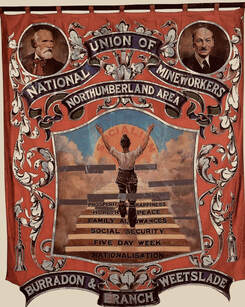 Masonry seeks to ennoble common life. Its work is to go down into the obscure & unsearched records of daily conduct & feeling; & to portray, not the ordinary virtue of an extraordinary life; but the more extraordinary virtue of ordinary life. What is done & borne in the shades of privacy, in the hard & beaten path of daily care & toil, full of uncelebrated sacrifices; in the suffering, & sometimes insulted suffering, that wears to the world a cheerful brow; in the long strife of the spirit, resisting pain, penury, & neglect, carried on in the inmost depths of the heart;--what is done, & borne, & wrought, & won there, is a higher glory, & shall inherit a brighter crown. On the volume of Masonic life one bright word is written, from which on every side blazes an ineffable splendor. That word is DUTY. To aid in securing to all labor permanent employment & its just reward: to help to hasten the coming of that time when no one shall stiffer from hunger or destitution, because, though willing & able to work, he can find no employment, or because he has been overtaken by sickness in the midst of his labor, are part of your duties as a Knight of the Royal Axe. & if we can succeed in making some small nook of God's creation a little more fruitful & cheerful, a little better & more worthy of Him,--or in making some one or two human hearts a little wiser, & more manful & hopeful & happy, we shall have done work, worthy of Masons, & acceptable to our Father in Heaven.' - http://www.phoenixmasonry.org/morals_and_dogma/knight_of_the_royal_axe_or_prince_of_libanus.htm 'Two Freemasons’ lodges set up more than 80 years ago for members of parliament & political journalists are continuing to operate [in the House of Commons/Lords], the Guardian has learned. New Welcome Lodge, which set up to recruit MPs, peers & parliamentary staff, & Gallery Lodge, established for members of the political press corps known as the lobby, both remain active, according to Freemasonry records.' - https://www.theguardian.com/politics/2018/feb/04/two-freemasons-lodges-operating-secretly-at-westminster Epiblog '5 Things Marx Wanted to Abolish (Besides Private Property) 1. The Family Marx admits that destroying the family is a thorny topic, even for revolutionaries. “Abolition of the family! Even the most radical flare up at this infamous proposal of the Communists,” he writes. But he said opponents of this idea fail to understand a key fact about the family. “On what foundation is the present family, the bourgeois family, based? On capital, on private gain. In its completely developed form, this family exists only among the bourgeoisie,” he writes. Best of all, abolishing the family would be relatively easy once bourgeois property was abolished. “The bourgeois family will vanish as a matter of course when its complement vanishes, and both will vanish with the vanishing of capital.” 2. Individuality Marx believed individuality was antithetical to the egalitarianism he envisioned. Therefore, the “individual” must “be swept out of the way, and made impossible.” Individuality was a social construction of a capitalist society and was deeply intertwined with capital itself. “In bourgeois society capital is independent and has individuality, while the living person is dependent and has no individuality,” he wrote. “And the abolition of this state of things is called by the bourgeois, abolition of individuality and freedom! And rightly so. The abolition of bourgeois individuality, bourgeois independence, and bourgeois freedom is undoubtedly aimed at.” 3. Eternal Truths Marx did not appear to believe that any truth existed beyond class struggle. “The ruling ideas of each age have ever been the ideas of its ruling class,” he argued. “When the ancient world was in its last throes, the ancient religions were overcome by Christianity. When Christian ideas succumbed in the 18th century to rationalist ideas, feudal society fought its death battle with the then revolutionary bourgeoisie.” He recognized how radical this idea would sound to his readers, particularly since Communism does not seek to modify truth, but to overthrow it. But he argued these people were missing the larger picture. “‘Undoubtedly,’ it will be said, ‘religious, moral, philosophical, and juridical ideas have been modified in the course of historical development. But religion, morality, philosophy, political science, and law, constantly survived this change. There are, besides, eternal truths, such as Freedom, Justice, etc., that are common to all states of society. But Communism abolishes eternal truths, it abolishes all religion, and all morality, instead of constituting them on a new basis; it therefore acts in contradiction to all past historical experience.’ What does this accusation reduce itself to? The history of all past society has consisted in the development of class antagonisms, antagonisms that assumed different forms at different epochs.” 4. Nations Communists, Marx said, are reproached for seeking to abolish countries. These people fail to understand the nature of the proletariat, he wrote. “The working men have no country. We cannot take from them what they have not got. Since the proletariat must first of all acquire political supremacy, must rise to be the leading class of the nation, must constitute itself the nation, it is so far, itself national, though not in the bourgeois sense of the word.” Furthermore, largely because of capitalism, he saw hostilities between people of different backgrounds receding. As the proletariat grew in power, there soon would be no need for nations, he wrote. “National differences and antagonism between peoples are daily more and more vanishing, owing to the development of the bourgeoisie, to freedom of commerce, to the world market, to uniformity in the mode of production and in the conditions of life corresponding thereto.” 5. The Past Marx saw tradition as a tool of the bourgeoisie. Adherence to the past served as a mere distraction in proletariat’s quest for emancipation and supremacy. “In bourgeois society,” Marx wrote, “the past dominates the present; in Communist society, the present dominates the past.” Reprinted from Intellectual Takeout Jon Miltimore Jonathan Miltimore is the Managing Editor of FEE.org. His writing/reporting has appeared in TIME magazine, The Wall Street Journal, CNN, Forbes, & Fox News.' - https://fee.org/articles/5-things-marx-wanted-to-abolish-besides-private-property/
0 Comments
Leave a Reply. |

|
|
